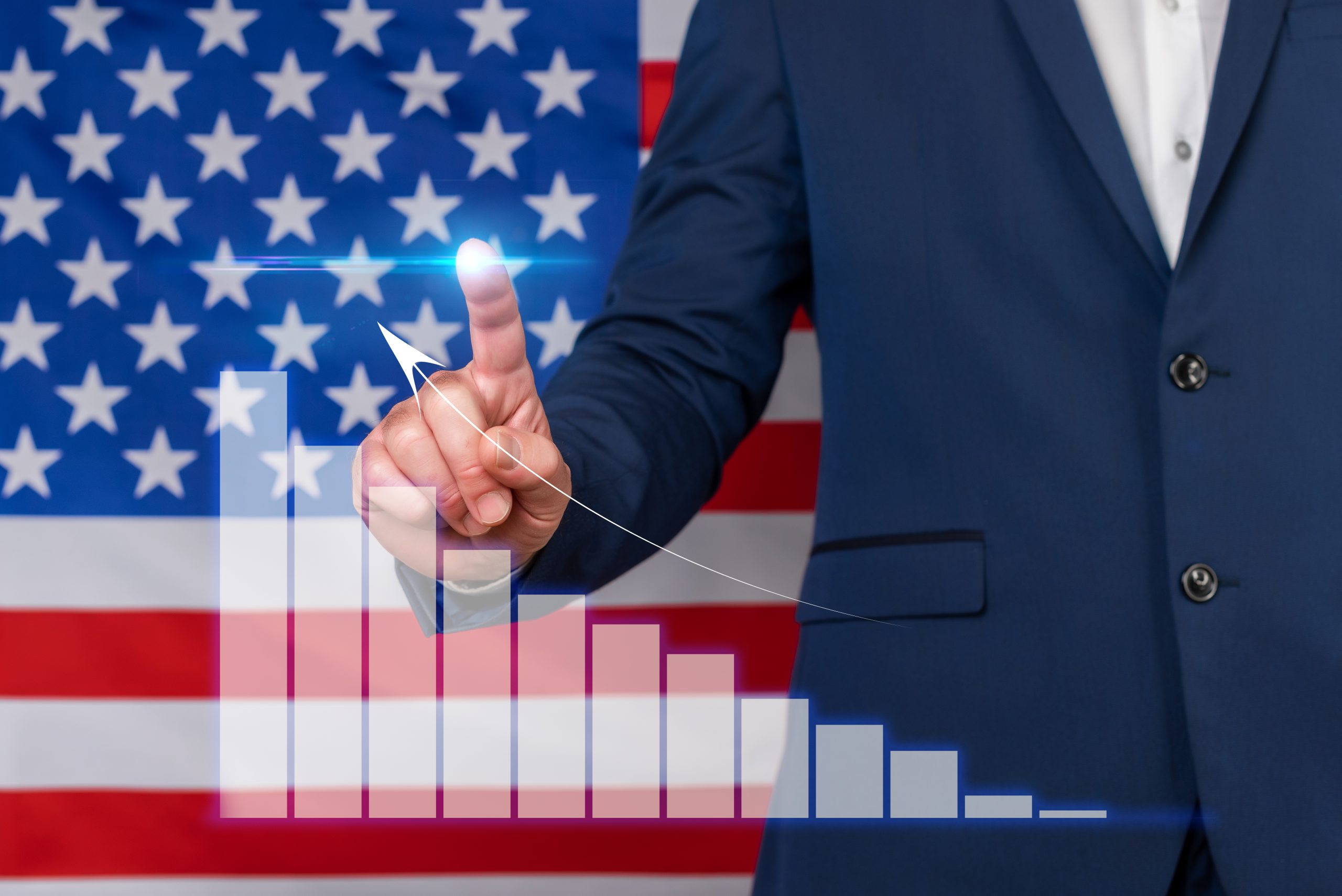Have you ever wondered how presidential elections affect the U.S. economy? In this article, we’ll explore the relationship between elections and the economic landscape. The state of the economy is a crucial factor in determining election outcomes, with incumbents often being held accountable. We’ll examine successful reelections during strong job markets and unsuccessful ones due to economic issues. By understanding this connection, we can gain insights into how elections and the economy intersect and influence each other.
The Impact of Candidate Policies
The impact of candidate policies on the overall U.S. economy is significant. When analyzing the impact of trade policies, economic growth, financial regulations, employment rate, and tax reforms, it is important to approach the subject in a data-driven, analytical, and objective manner.
Trade policies play a crucial role in shaping the economic landscape. Candidates’ stances on international trade agreements and tariffs can have far-reaching consequences for industries and consumers alike. Changes in trade policies can impact the competitiveness of American businesses, the availability of goods and services, and ultimately, the overall economic growth.
Financial regulations are another critical factor. Candidates’ proposals on regulations can affect the stability and functioning of financial markets. Striking the right balance between protecting consumers and allowing for innovation and economic growth is key.
The employment rate is a key indicator of economic health. Candidate policies that promote job creation, workforce development, and a favorable business environment can contribute to reducing unemployment and stimulating economic activity.
Tax reforms are also a significant consideration. Candidates’ proposals on tax policies can influence business investment, consumer spending, and overall economic growth. Changes in tax rates, deductions, and credits can have both direct and indirect effects on businesses and individuals.
Analysis of Economic Indicators
In an analysis of economic indicators, you can examine the impact of presidential elections on the overall U.S. economy. This analysis involves various methods such as correlation analysis, regression analysis, principal component analysis, time series prediction, and text mining. Here are four key points to consider:
- Correlation analysis: This analysis helps determine if there is a relationship between economic indicators. By visualizing the correlation through thermodynamic diagrams, we can observe the strength of the correlation and the mutual influence between different indicators.
- Regression analysis: Using stepwise regression analysis, we can select the factors that have the greatest influence on the explanatory variables. This analysis results in a regression equation that shows the relationships between the indicators. For example, market value and tax quota may have a negative correlation with environmental protection investment, while infrastructure and employment may have a positive correlation.
- Principal component analysis: By converting measured variables into comprehensive indexes, principal component analysis helps identify the first few largest principal components. In the analysis of economic indicators, market value and employment are found to have the greatest influence on the total value of presidential policies.
- Time series prediction: This method is used to forecast and analyze the future economic development of both the U.S. and China. By applying time series prediction models, we can obtain insights into the possible trends and make informed decisions.
Relationship Between US and Chinese Economy
To understand the relationship between the US and Chinese economy, it is important to recognize the impact of presidential elections. Sino-US trade relations play a crucial role in the economic interdependence between the two nations. The decisions made by the elected president can have a significant global economic impact, particularly in the context of trade tariffs and market competition.
The US and China are the world’s two largest economies, and their economic relationship is complex. Over the years, bilateral trade between the two countries has grown rapidly, leading to both cooperation and friction. The presidential elections can shape the future trajectory of this relationship.
One key aspect is trade tariffs. The imposition of tariffs by one country can lead to retaliatory actions by the other, disrupting the flow of goods and negatively impacting businesses in both nations. The stance taken by the newly elected president on trade tariffs can either ease or exacerbate tensions between the US and China.
Furthermore, market competition between the two economies is an important consideration. Both countries have significant influence in global markets, and their economic policies can directly impact each other’s competitiveness. The elected president’s approach to market competition can affect the balance of power and economic dynamics between the US and China.
Word Cloud and Policy Recommendations
Explore the significance of a word cloud and analyze policy recommendations in the context of presidential elections and the overall U.S. economy.
- US Election Policies: The policies proposed by presidential candidates have a significant impact on the economy and shape the strategic development models for the country. Analyzing these policies allows us to understand their potential effects on various economic indicators.
- Economic Indicators: Examining economic indicators such as infrastructure, taxes, environmental investment, employment, and market value provides insights into the state of the economy and its potential trajectory.
- Chinese Economy Impact: Understanding the impact of the US presidential election on the Chinese economy is crucial due to the complex trade relations between the two countries. Analyzing this impact helps identify potential opportunities and challenges.
- Text Mining Analysis: Utilizing text mining techniques allows us to extract valuable information from policy documents and other unstructured text data. This analysis helps identify key themes, priorities, and recommendations for economic policies.
Based on the analysis of these factors, policy recommendations can be made:
- Environmental Protection Recommendations: The government should focus on reducing the use of traditional energy sources and promote the adoption of new energy technologies to prioritize environmental protection.
- Infrastructure Investment: Relevant government departments should pay more attention to domestic infrastructure investment to stimulate economic growth and create job opportunities.
- Trade Negotiations: Both the US and China should actively engage in trade negotiations to foster mutually beneficial economic relationships and explore new markets.
- Employment Promotion: Development policies and recruitment of foreign personnel should be implemented to promote domestic employment and support economic growth.
Importance of the Economy in Elections
Understanding the significance of the economy in elections is crucial for analyzing the impact of presidential candidates’ policies on the overall U.S. economy. The state of the economy plays a significant role in determining election outcomes. Incumbent presidents are often held responsible for the state of the economy, and it is one of the most persistent factors influencing voters’ decisions. While other factors such as war, social issues, and candidate personality also matter, the economy consistently remains a key factor.
Historically, incumbent presidents have had successful reelections when they presided over a strong job market. Presidents like Dwight Eisenhower, Lyndon Johnson, Bill Clinton, and George W. Bush were reelected with both full employment and low inflation. Ronald Reagan won in 1984 with rapid job gains and falling unemployment. On the other hand, unsuccessful reelections have been attributed to economic issues such as high inflation, high unemployment, and minimal employment gains.
In the current election year, the state of the economy remains a topic of discussion. The Great Recession and subsequent recovery have influenced economic prospects. Recent indicators show an improving economy, with rising housing activity, new car sales, and faster employment gains. However, risks such as the uncertainty in the world oil market, particularly with Iran, could impact the U.S. recovery and purchasing power.
Looking ahead to the 2012 election, unemployment is projected to be between 7.5 and 8 percent. The resolution of the Iran crisis without disruption could lead to a stronger expansion, favoring the incumbent. Although the economy is more comparable to Reagan’s situation in 1984, without the same level of employment gains, a favorable outcome in the Iran crisis could lead to a retreat in oil prices and a stronger economy. Ultimately, the economy will play a significant role in shaping the election outcomes, as it has in the past.
Successful Reelections With Strong Job Markets
In analyzing the impact of presidential candidates’ policies on the overall U.S. economy, it is important to consider the historical success of incumbent presidents in securing reelection when they have presided over a strong job market. The correlation between the job market and reelection is a crucial factor to examine. Here are four key points to consider:
- Incumbent presidents such as Dwight Eisenhower, Lyndon Johnson, Bill Clinton, and George W. Bush all won reelection with a strong job market characterized by full employment and low inflation.
- Ronald Reagan also won in 1984 due to rapid job gains and falling unemployment.
- On the other hand, unsuccessful reelections can be attributed to economic issues, such as high inflation and unemployment rates. Gerald Ford, Jimmy Carter, and George H.W. Bush all faced these challenges during their campaigns.
- It is essential to understand the role of candidate policies in shaping the job market and its subsequent impact on reelection outcomes.
Unsuccessful Reelections Due to Economic Issues
In the analysis of the impact of presidential candidates’ policies on the overall U.S. economy, it is important to consider the historical examples of unsuccessful reelections due to economic issues. These examples serve as a reminder of the potential consequences of economic challenges on a president’s chances of staying in office. Two key factors that have contributed to unsuccessful reelections in the past are high inflation and high unemployment. Additionally, a jobless recovery, rapid inflation, and minimal employment gains have also played a role in undermining a president’s bid for a second term.
To illustrate the impact of these economic issues on reelection outcomes, let’s examine three historical cases. Gerald Ford lost in 1976 due to high inflation inherited from the previous administration and high unemployment. Jimmy Carter experienced a similar fate in 1980, with rapid inflation and a higher unemployment rate leading to his landslide defeat. In 1992, George H.W. Bush faced a jobless recovery with minimal employment gains and high unemployment, which ultimately resulted in his loss.
The table below provides a visual representation of these unsuccessful reelections due to economic issues:
| Year | President | Economic Issues |
|---|---|---|
| 1976 | Gerald Ford | High inflation and high unemployment |
| 1980 | Jimmy Carter | Rapid inflation and higher unemployment rate |
| 1992 | George H.W. Bush | Jobless recovery, minimal employment gains, and high unemployment |
These historical examples highlight the importance of addressing economic challenges effectively to secure a successful reelection bid. Presidential candidates must carefully consider their policies and strategies to ensure that they can navigate potential economic pitfalls and maintain the support of the American people.
Comparison and Economic Prospects for 2012 Election
As we continue to analyze the impact of presidential candidates’ policies on the overall U.S. economy, let’s now turn our attention to the comparison and economic prospects for the 2012 election. In this analysis, we will focus on the economic indicators, US-China relations, time series prediction, policy recommendations, and the impact on the Chinese economy.
- Economic Indicators: The economic indicators play a crucial role in assessing the health of the economy. These indicators include factors such as infrastructure, taxes, environmental investment, employment, and market value. Analyzing these indicators provides insights into the economic policies and priorities of the presidential candidates.
- US-China Relations: The relationship between the US and China has a significant impact on the global economy. The policies of the presidential candidates regarding trade and diplomacy with China can shape the future of this relationship. It is essential to understand the potential consequences of these policies on both economies.
- Time Series Prediction: By using time series prediction models, we can forecast and analyze the future economic development of both the US and China. These models help us understand the potential trends and dynamics that may occur based on different policy scenarios.
- Policy Recommendations and Impact on Chinese Economy: Based on the analysis of economic indicators, US-China relations, and time series prediction, we can provide policy recommendations that consider the potential impact on the Chinese economy. These recommendations can help guide decision-making and inform strategies for both countries.




